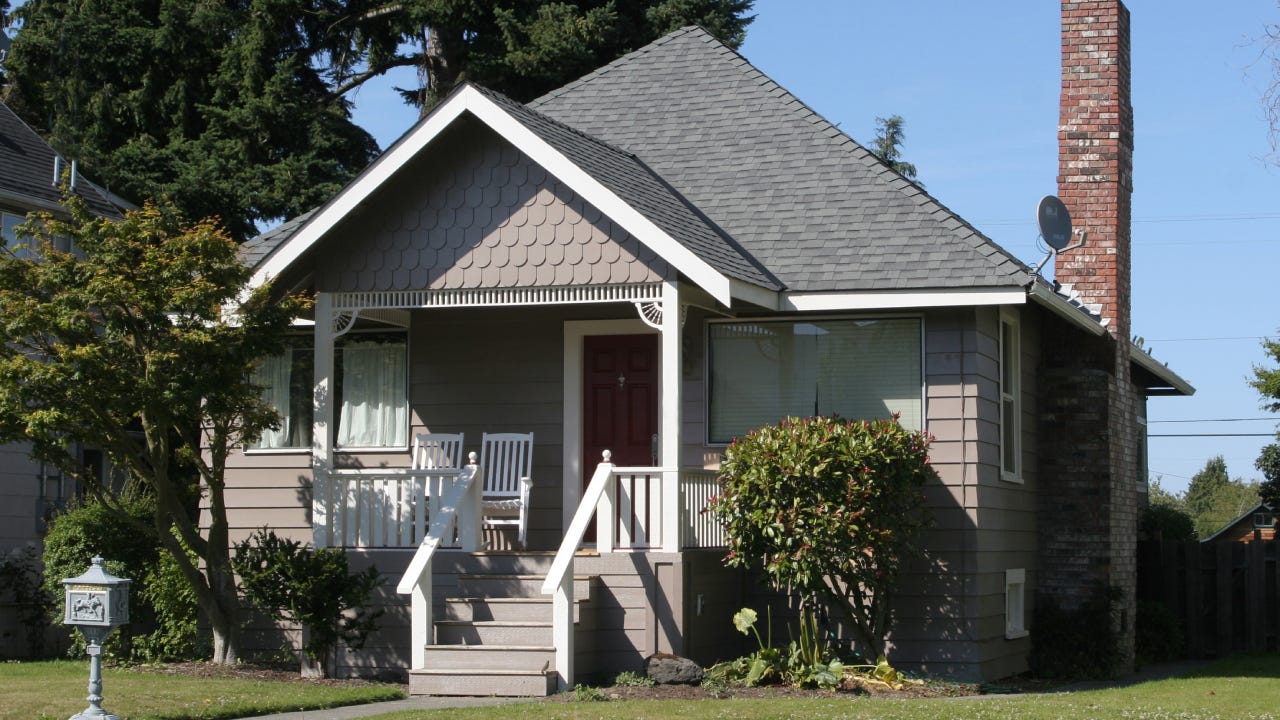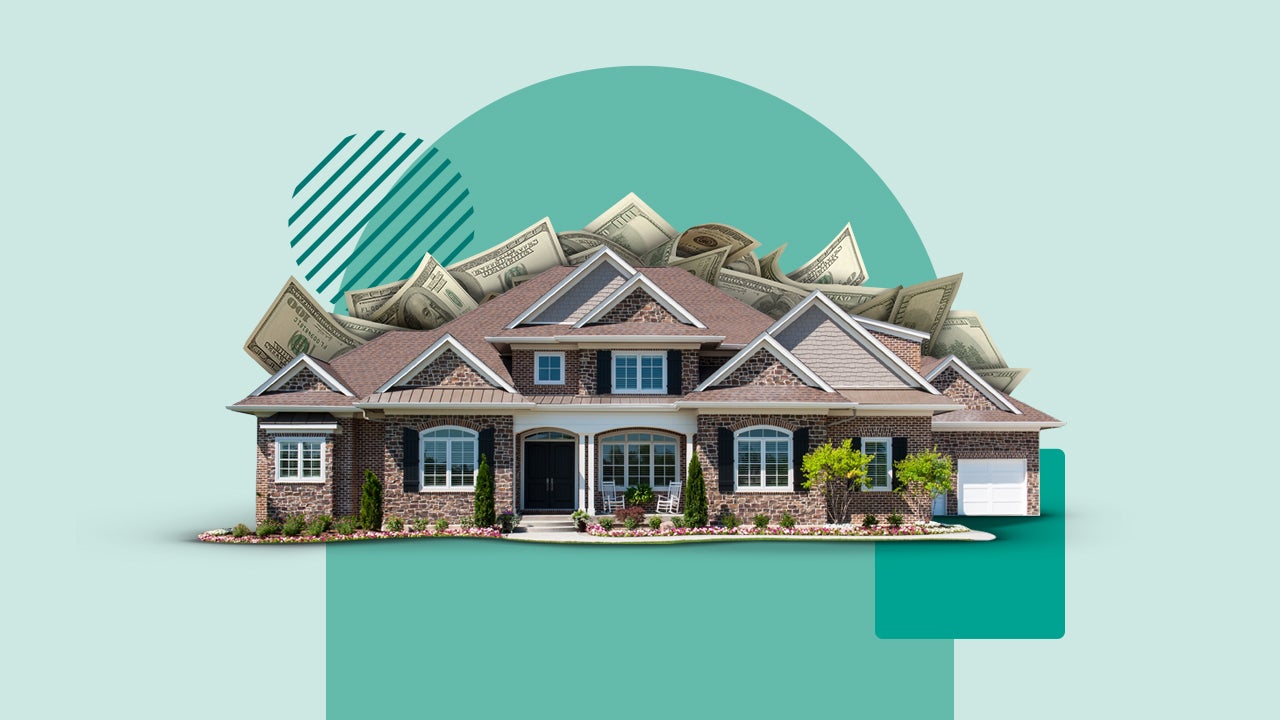What income do I need to afford a $250K house?

If you’re in the market for a $250,000 home, your options may be limited — the national median home sale price is just under $400,000, according to the National Association of Realtors. That means only half of all homes that sell cost less than $400,000, though some markets accommodate lower price points more easily than others.
Whether you can afford a $250K home once you find one will depend on several factors beyond just your annual salary, including your loan type, down payment amount and interest rate. But income is the main factor, and Bankrate’s mortgage calculator can help you determine the income needed for a $250K house purchase. Assuming a 20 percent down payment on a 30-year loan with a fixed interest rate of 7 percent, your monthly principal and interest payments would be about $1,330. Additional expenses like property taxes, homeowners insurance and HOA fees (if applicable) will increase this amount — so let’s approximate and round up to $1,800 per month, totaling $21,600 annually.
A general rule for housing affordability suggests that you shouldn’t spend more than about a third of your income on housing. So, multiply the $21,600 figure by three to estimate the annual income needed to comfortably afford a $250,000 purchase: about $65,000. However, remember that this estimation does not factor in saving up for the upfront costs of a down payment and closing fees, nor does it factor in an other debts or bills you may have.
Income to afford a $250K house
Many lenders follow the 28/36 rule when determining how much borrowers can afford for a home purchase. This guideline suggests that you should allocate no more than 28 percent of your income toward housing costs and no more than 36 percent toward all debt payments (including housing).
Let’s apply the 28/36 rule to an income of $65,000. This translates to a monthly income of about $5,417, with 28 percent of that being $1,517 — that would be your maximum recommended housing payment. That falls a bit short of the $1,800 monthly estimate calculated above, but a bit above the $1,330 principal and interest payment, so a lot depends on variables like insurance and property tax rates in your area, and whether or not you have homeowners association fees to pay.
It’s also important to remember the 36 percent aspect of the 28/36 percent rule. Evaluate all your monthly debt payments, like car payments, credit card bills and student loans, to ensure that these payments, along with your potential mortgage payment, do not exceed 36 percent of your income. Stretching beyond 36 percent could put a strain on your budget, and you’ll have home maintenance and upkeep to stay on top of as well.
Remember, too, that your money will go much further in some areas than others. While $250K is well below the national median, some markets will suit your budget just fine — Indianapolis, for example, had a median sale price of $240,000 in March, according to Redfin data. And even in more expensive markets, condos and townhouses will be cheaper options than single-family homes.
What factors determine how much you can afford?
When weighing a home purchase, there’s more to consider than just how much you make or how much the house costs. Various factors play a significant role in determining how much house you can afford, such as:
- Credit score: This number heavily influences the type of mortgage loan you qualify for and the interest rate you receive. “A higher credit score can result in better loan terms and lower interest rates,” says Emanuel Santa-Donato, a senior vice president with Tomo. “You should certainly check and aim to repair your credit score ahead of looking for a mortgage.”
- LTV and DTI ratios: Mortgage lenders closely examine your loan-to-value ratio (comparing the loan amount to the home’s value) and your debt-to-income ratio (comparing your debt obligations to the income you earn) when assessing your application.
- Down payment: The upfront amount you contribute toward the home purchase directly impacts your monthly loan costs. A larger down payment means borrowing less, resulting in lower interest payments over time. While 20 percent of the home’s sale price is often considered standard, it might not be necessary: “Twenty percent is by no means a rule and it doesn’t always make sense financially,” Santa-Donato says.
- Mortgage type: Many loan types require less than 20 percent down, reducing upfront costs (but potentially increasing monthly payments). “You may qualify for an FHA loan for as low as 3.5 percent down, or a conventional loan for only 3 percent down,” says Santa-Donato. “USDA and VA loans can even be had for zero down if you are eligible.”
- Financial assistance: Investigate state and local down payment assistance programs in your area. If you qualify, these programs can make the upfront costs of buying a home much less daunting, especially for first-time homebuyers or those with lower incomes.
“Don’t forget that owning a home involves various additional factors and costs beyond mortgage payments,” says Matt Dunbar, senior vice president of the Southeast region for Churchill Mortgage. “Property taxes significantly impact overall expenses. Homeowner’s insurance premiums should be factored into the budget, and HOA fees may apply for communal amenities and maintenance in planned communities. Ongoing maintenance and repairs, utility costs and budgeting for home improvements and renovations should also be considered.”
Stay the course until you actually close
Once you’re in contract on a house, your financial work is not done. It’s best to refrain from making large purchases or significant life changes that could impact your credit score while you await your closing date. This includes things like buying a car, applying for new credit cards or even changing jobs. Lenders could still reassess your financial situation, even at this late stage, so don’t give them any reason to if you can help it.
Throughout the process, don’t forget the importance of a local real estate agent who is well-versed in your area’s specific housing market. Finding options in this price range can be tricky, and agents can guide you as you navigate both the market and the closing process.
FAQs
-
The answer depends on several variables. Based on Bankrate’s mortgage calculator, if you opt for a 30-year fixed-rate mortgage on a $250,000 home with a 20 percent down payment and a 7 percent interest rate, your monthly principal and interest payments would amount to $1,330. But this amount will rise when you factor in additional required expenses like property taxes and homeowners insurance premiums, which vary widely depending on your location. If the property is part of a homeowners association, you’ll need to factor in HOA fees too.
-
You likely need an income of at least $65,000 to afford a $250,000 house — and possibly more depending on your other debt obligations and the cost of living in your area. The 28/36 rule is a helpful guideline for determining how expensive of a house you can afford: It states that no more than 28 percent of your income should be devoted to paying for housing costs, while no more than 36 percent should go to your overall debt, including housing.
Why we ask for feedback Your feedback helps us improve our content and services. It takes less than a minute to complete.
Your responses are anonymous and will only be used for improving our website.






